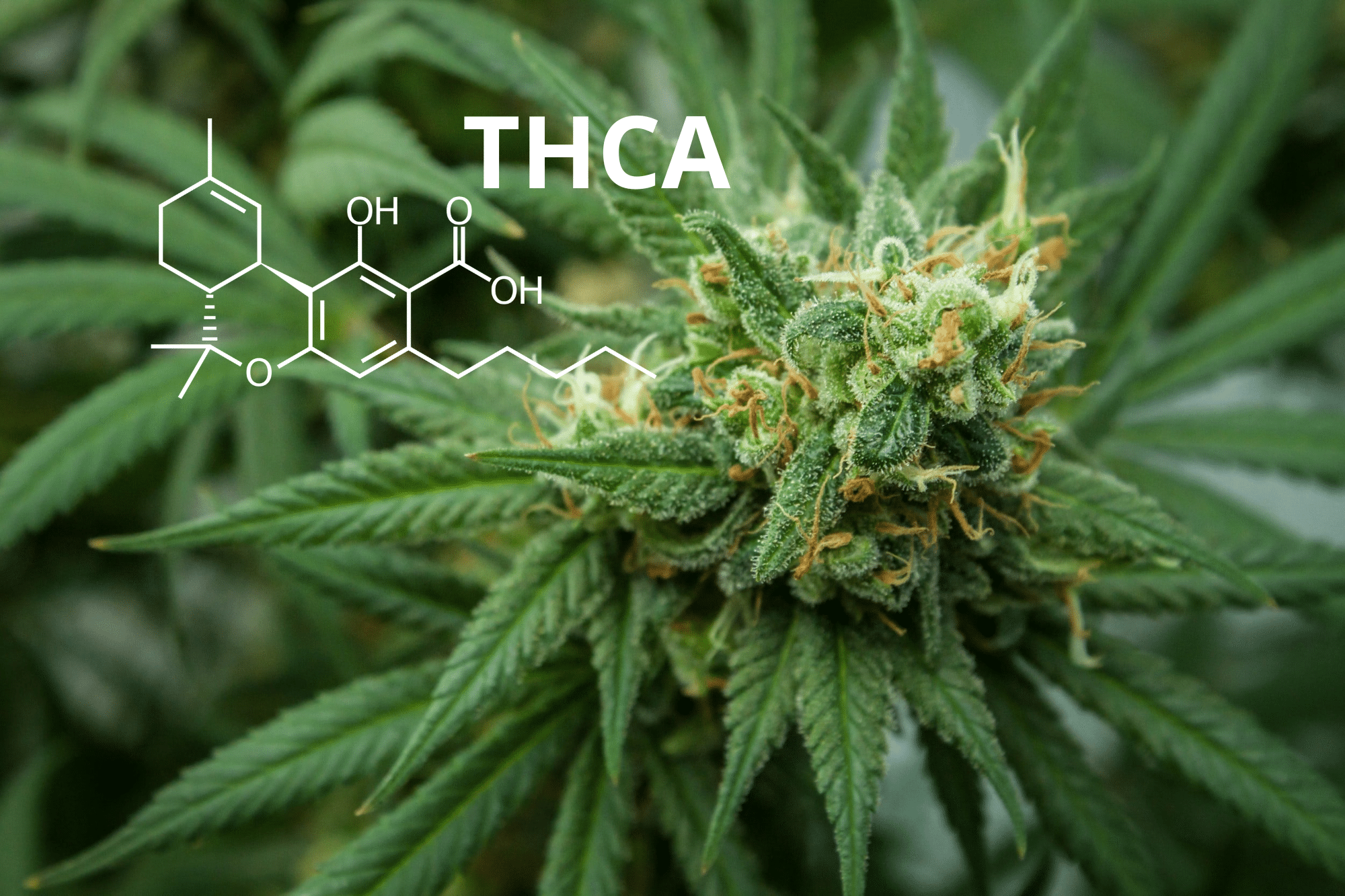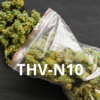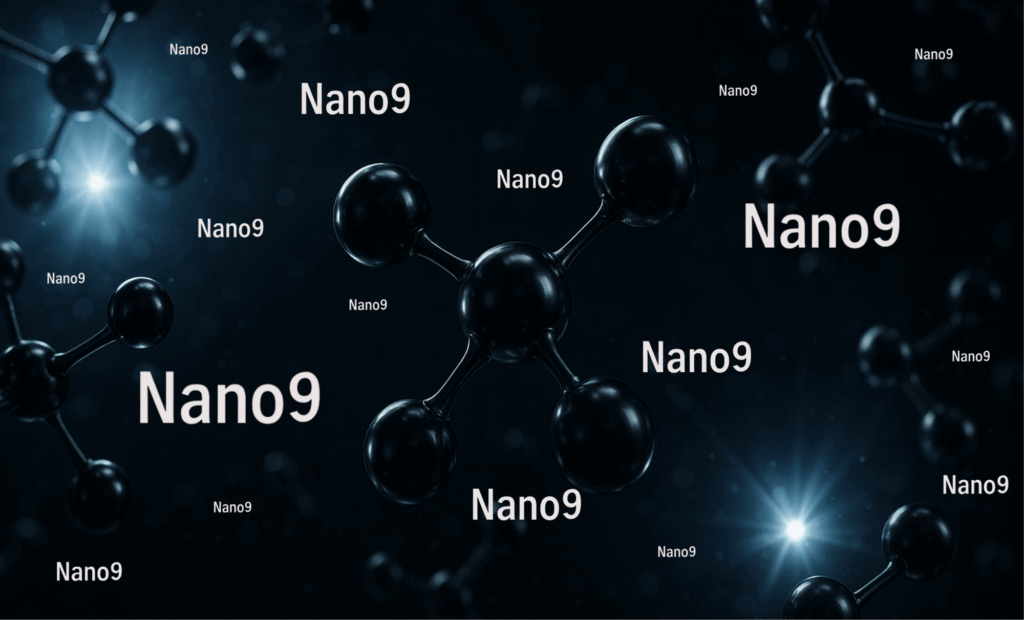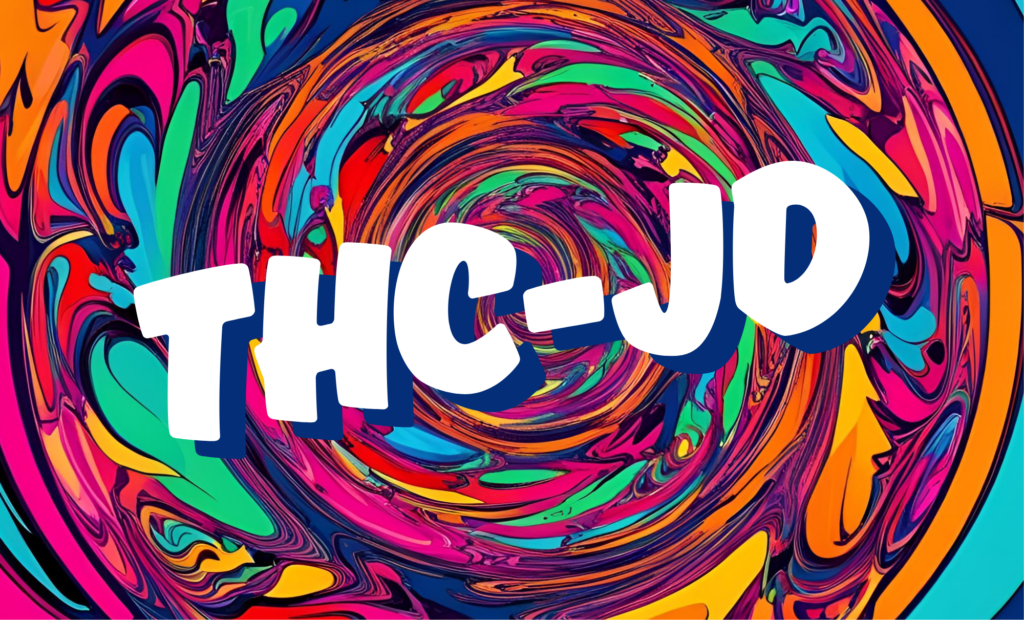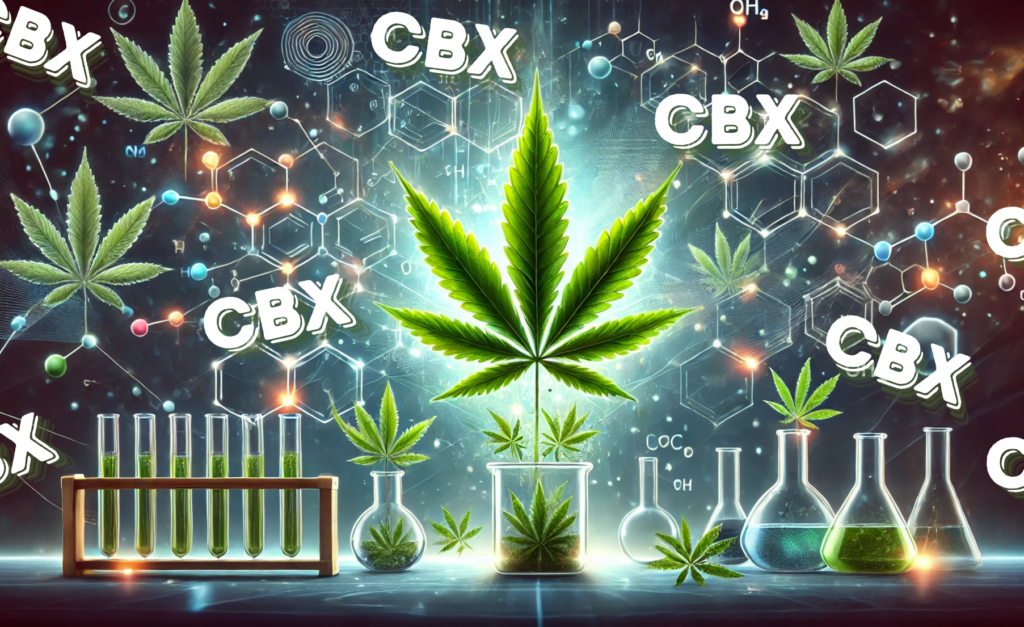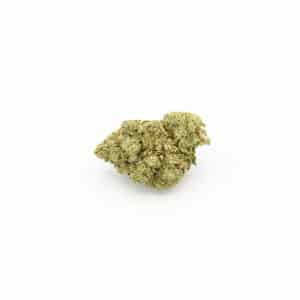THCA, or tetrahydrocannabinolic acid, is a cannabinoid found in the cannabis plant, which is attracting increasing interest in discussions of its potential applications, both in the health field and in the cannabis industry. of cannabis. Unlike THC, which is well known for its psychoactive effects, THCA is a non-psychoactive compound. It does not produce the feeling of euphoria, often associated with cannabis consumption, but has properties that could have interesting therapeutic benefits.
In the cannabis plant, THCA is naturally present in its raw form. It is mainly found in fresh cannabis flowers, but also in other parts of the plant. In its natural state it does not have an intoxicating effect, but when heated, such as when smoking or vaporizing, it converts to THC, a compound known for its psychotropic effects. It is this chemical transformation, called decarboxylation, which is at the heart of the interest in THCA in certain circles, particularly among consumers seeking to maximize the psychoactive effects of THC while having access to legal products, particularly in countries Europeans.
Difference between THCA and THC
One of the main distinctions between THCA and THC is their effects on the human body. THCA, in its raw state, does not cause any psychotropic effects. It is often consumed for its potential therapeutic benefits, without causing the state of euphoria sought by some cannabis users. On the other hand, when THCA is heated, it undergoes a chemical reaction that transforms it into THC (tetrahydrocannabinol), which is responsible for psychotropic effects such as the feeling of "high".
The decarboxylation of THCA to THC occurs at relatively low temperatures, which is why THCA is often consumed in the form of flowers or concentrates which are then vaporized or smoked. This process releases the full potential of THC and produces the effects expected by consumers. For those seeking only the therapeutic benefits of cannabis without its psychoactive effects, consuming THCA in its raw form, such as in raw cannabis juices or in patch form, may be a viable option.
Forms of THCA available
THCA is offered in various forms on the market, each with their own uses and methods of consumption. Here are the main ones:
- THCA-rich cannabis flowers : Cannabis flowers naturally contain THCA. These flowers are often sold under the “hemp” label when they meet the legal threshold of 0.3% THC in several countries, including France. These flowers can be eaten raw for their potential therapeutic benefits, or vaporized to cause decarboxylation and release THC.
- THCA crystals (or THCA diamonds) : THCA crystals are obtained from a complex extraction process, which isolates THCA and purifies it in the form of small translucent crystals. These THCA “diamonds” are popular among cannabis users who are looking for a high concentration of THC after decarboxylation. Used in particular for dabbing, a method of inhaling vapors, these crystals allow very high levels of THC to be obtained.
- THCA Patches : Like nicotine patches, THCA patches deliver a controlled amount of THCA directly into the bloodstream. This form is often preferred by consumers looking to benefit from the potential effects of THCA without smoking or vaporizing the substance, and without psychoactive effects.
- THCA Edibles : Edible products containing THCA, such as gummies or capsules, are also a way to consume this cannabinoid. However, it is important to note that the cooking process can sometimes result in THCA being partially decarboxylated into THC, which could cause mild psychoactive effects.
The therapeutic effects and potential of THCA
Although THCA does not cause a raw psychoactive effect, preliminary research shows that it could have several therapeutic benefits. Studies on animal models and, to a lesser extent, on humans, have suggested that THCA could have anti-inflammatory, anti-nausea, and anticonvulsive effects. Some researchers also look at its neuroprotective potential, especially in the treatment of neurodegenerative diseases such as Parkinson or Alzheimer's disease.
Due to its non-psychoactive status, THCA could be an interesting option for consumers seeking to benefit from the benefits of cannabis without the altered state of consciousness. It could thus help relieve chronic pain, reduce inflammation, or even alleviate symptoms linked to gastrointestinal disorders. However, it is important to emphasize that THCA research is still in its infancy, and more clinical studies are needed to better understand its effects and effectiveness in humans.
Legality of THCA in France and Europe
THCA, as a non-psychoactive compound, occupies a special place in European legislation. In France, for example, the cannabinoid law relies on strict regulation of THC, but THCA is not explicitly prohibited as long as it is sold in products meeting the legal THC threshold of 0.3%. This means that products containing THCA, such as flower or concentrates, can be marketed as long as they meet this limit.
This legal distinction allows consumers to legally obtain THCA without violating controlled substance laws. However, it is crucial to understand that THCA can convert to THC through simple heating, which could create a legal gray area, particularly if the product is used to generate THC concentrations above the permitted limit.
At the European level, regulations vary from country to country, but the European Union generally tolerates the presence of THCA in hemp products, as long as they respect the thresholds imposed in terms of THC content . For French or European consumers, this opens the door to using THCA in various forms, without the risk of violating local laws, provided that THCA is used in its raw, unprocessed form.
Risks and side effects of THCA
As with any cannabinoid compound, THCA may pose some risks, although these are generally less than those associated with THC. In its raw form, THCA does not cause intoxication, but it can still cause side effects such as nausea, gastrointestinal upset, or skin rashes in some people. Additionally, some studies have found that THCA might interact with certain medications, which should be taken into account in people taking specific drug treatments.
The main source of risk with THCA lies in its transformation into THC when heated. Smoking or vaporizing THCA to obtain THC can cause side effects similar to those of THC, such as a feeling of relaxation, a change in perception, memory problems, or an increased heart rate. In extreme cases, excessive THC consumption can cause anxiety attacks or hallucinations, particularly in people sensitive to the cannabinoid.
Finally, it is also important to mention that, as with any cannabis-derived product, the quality and purity of THCA can vary considerably from one product to another, especially in a market that is still relatively young and growing. It is therefore recommended to choose products from reliable sources, with supporting laboratory analyzes to guarantee the absence of contaminants.
Future Perspectives and Research on THCA
THCA represents an area of growing interest for researchers and healthcare professionals. Its potential effects on inflammation, chronic pain and neurodegenerative diseases open up interesting perspectives for alternative treatments. However, it is crucial that human clinical research continues to accurately determine the therapeutic applications of THCA and its long-term effectiveness.
In a booming European market for cannabinoid products, THCA could become a product of choice for those seeking the benefits of cannabis without the psychotropic effects. Companies specializing in CBD and legal cannabinoids have already started offering THCA-based products, in the form of flowers, concentrates or edibles. As regulations ease and research advances, it is likely that THCA will play an increasingly important role in the cannabinoid industry in France and Europe.
In conclusion, THCA represents a promising component of cannabis, with a wide range of possible therapeutic applications.
